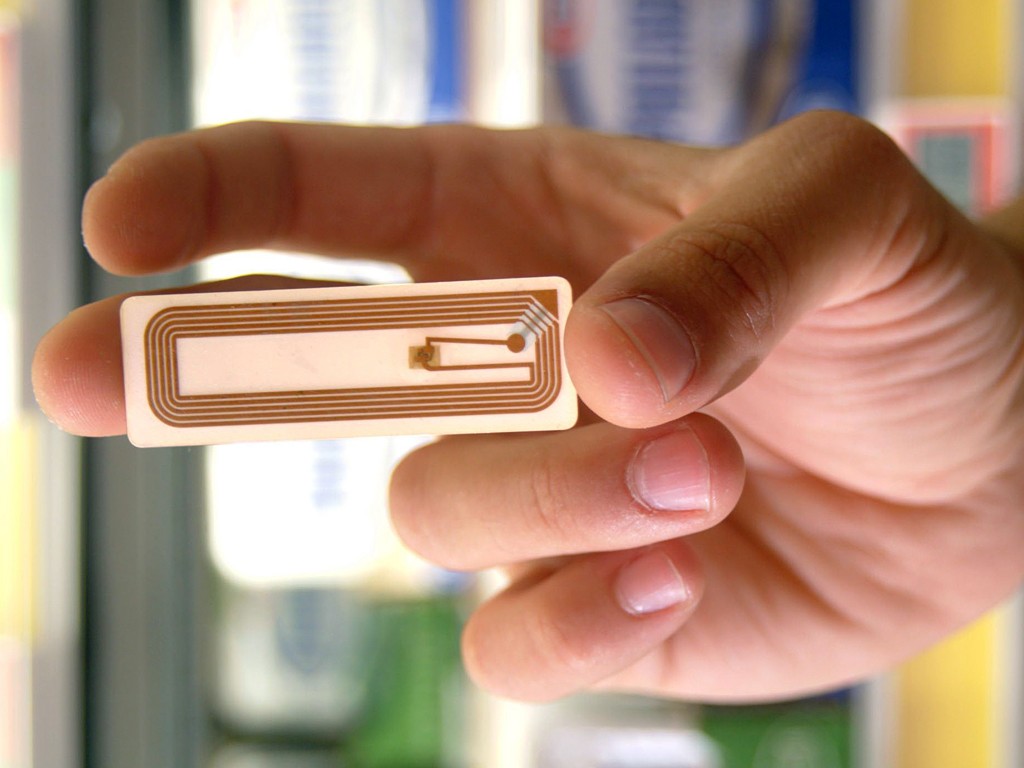
Smart environments (RFID)
The Smart Environments project of Waag was intended as an expertise centre in the field of the cultural and societal impact of RFID (Radio Frequency Identification) on the relations between the government, the business world and citizens.
RFID is a technology based on radio waves, which makes it possible to tag products (and pets) with a small, passive chip (that does not contain a battery), readable by a RFID reader. This device emits electro-magnetic energy (radio waves in the spectrum 300kHz to 3 GHz) to activate the chip, that will respond with 'Here am I'.
RFID enables every possible object to carry a digital number. For the trade, this is no more than just a souped up barcode, for privacy activists it is nightmare, for us – Waag - being concept and prototype builders, it is a technology that can be used for community neighbourhood projects, interactive performances and it can be a prime factor in the debate on a possible future infrastructure in which the interests of all parties involved is well balanced.
Initiator Rob van Kranenburg and Waag wanted to research if the ambient (smart) society can become innovative, inclusive, sustainable and internationally competitive if developed coherently with social-cultural and creative benchmarks. Smart Environments started with the basic vision that ambient smart products and services based on RFID should have a broad public basis. A dialogue between companies, consumers and the government is necessary. Choices have to be made that can have a great influence on the lives of individuals in the smart society.
DIFR Network
Rob van Kranenburg started the network DIFR, in which all positions in the Dutch debate on RFID were covered, from ECP Global, GS1.nl, Rathenau Institute, HvA Medialab, KABK to de Balie, the Institute of Network culture but also the hackers of the University Nijmegen.